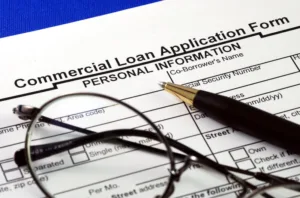Today we’re tackling a question I get all the time:
How do you make your offer stand out when there are multiple offers on a property?
In today’s market, when an investment-grade property comes available – something well-located, with solid numbers and a good tenant history – it often draws a lot of attention. Multiple buyers competing for the same deal is not the exception anymore. It’s the norm.
And when you’re in that kind of situation, trying to figure out how to make your offer rise to the top can feel like a guessing game.
Spoiler: it’s not all about price.
Let’s walk through four ways to make your offer competitive when you’re up against other buyers.
1. Keep Your Offer Clean by Removing Contingencies
From experience representing sellers, I’ve seen that the cleanest offer is usually the most attractive. And by “clean”, I mean one with no contingencies – or at least as few as possible.
Of course, in the world of investment properties, having zero contingencies is rare. Let’s say you’re looking at a 14-unit apartment building. It’s very common for the seller to only show one or two units before an agreement is in place in order to minimize tenant disruption. Once the property is under contract, then the rest of the units are shown.
Because of this, a short due diligence period is expected. It gives the buyer time to look at the rest of the building, confirm zoning or title details, and do their homework. But the key is keeping that period short and focused.
So if you’re trying to make your offer more competitive, look for ways to reduce or remove due diligence contingencies. If you can come in with limited requirements, you send a clear message: you’re serious, prepared, and unlikely to walk away over minor issues.
That kind of certainty is incredibly valuable to sellers.
2. Consider Waiving Your Financing Contingency
The second way to make your offer competitive is related, and it’s another powerful way to make your offer stand out: waive your financing contingency if possible.
Let’s say you’re looking to purchase a property for $1 million. You might not have $1 million in cash just sitting in your account, but maybe you have enough equity in other properties, or you know you can get a mortgage through your regular bank based on your existing financial relationship.
In that case, you might choose to waive the financing contingency.
To be clear, this doesn’t mean you’re not going to get a loan. It just means that you’re sure you can come up with the agreed-upon amount, one way or another.
That matters to the seller, because when a buyer includes a financing contingency, the seller now has to think about:
- What if the buyer’s lender doesn’t approve the property?
- What if it doesn’t appraise at this amount?
- What if the loan falls through and we’re back to square one?
By removing that contingency, you remove a lot of uncertainty. Even if you’re still planning to get a mortgage, you’re telling the seller that you’re willing to proceed whether or not the financing is perfect. This can make a big difference in a tight offer situation.
3. Present Yourself as a Strong Buyer
The third thing you can do to stand out is showcase your qualifications as a buyer. This is something that often gets overlooked but can absolutely make or break a deal.
When a seller is reviewing offers, they aren’t just looking at numbers and timelines. They’re also asking:
- Who is this buyer?
- Are they likely to follow through?
- Will they retrade and try to renegotiate later?
That last point is especially important. If you’re making an offer with a due diligence period – which, again, is usually expected – the seller wants to be confident that you’re not going to come back with a list of demands at the end.
We’ve all seen it happen. A buyer gets under contract, picks everything apart during inspections, and tries to knock $20,000 off the purchase price over something small. Sellers remember those experiences, and they’ll do what they can to avoid them.
So what can you do?
When you submit your offer, include a summary of who you are as a buyer. Talk about your experience. If you’ve closed deals like this before, say that. If you’ve worked with the agent or firm before and built a reputation for closing cleanly, make sure that’s known to the seller.
Let them know you’re not going to play games or try to retrade the deal. That trust and credibility go a long way in a competitive situation.
4. Offer a Competitive Price (Even If It’s Not the Highest)
Finally, we come to price.
Yes, price matters. It needs to be competitive. But I’ll say this again because I’ve seen it firsthand many times: the highest price doesn’t always win.
You could offer the most money, but if your offer is full of contingencies, long timelines, and uncertainty, it might not get accepted. Meanwhile, a slightly lower offer with better terms and a trustworthy buyer profile might win out.
So yes, you need to be in the right range. If your offer is too low, it won’t matter how clean it is or how qualified you are. The seller won’t even consider it.
But if your offer is competitive based on the market, even if it isn’t the highest bid, and you’ve nailed the first three tips, you stand a good chance of getting the deal.
Conclusion
When you’re competing in a hot market, it’s not just about outbidding other buyers. It’s about being the least risky choice.
Sellers want deals that will close smoothly and on time. Remove or shorten your contingencies, consider waiving the financial contingency, show your strength as a buyer, and offer a fair price.
If you’re writing offers and finding yourself in competitive situations, keep these four points in mind. If you do that, you’ll not only improve your chances of winning, but you’ll likely build a reputation as the kind of buyer people want to work with.





